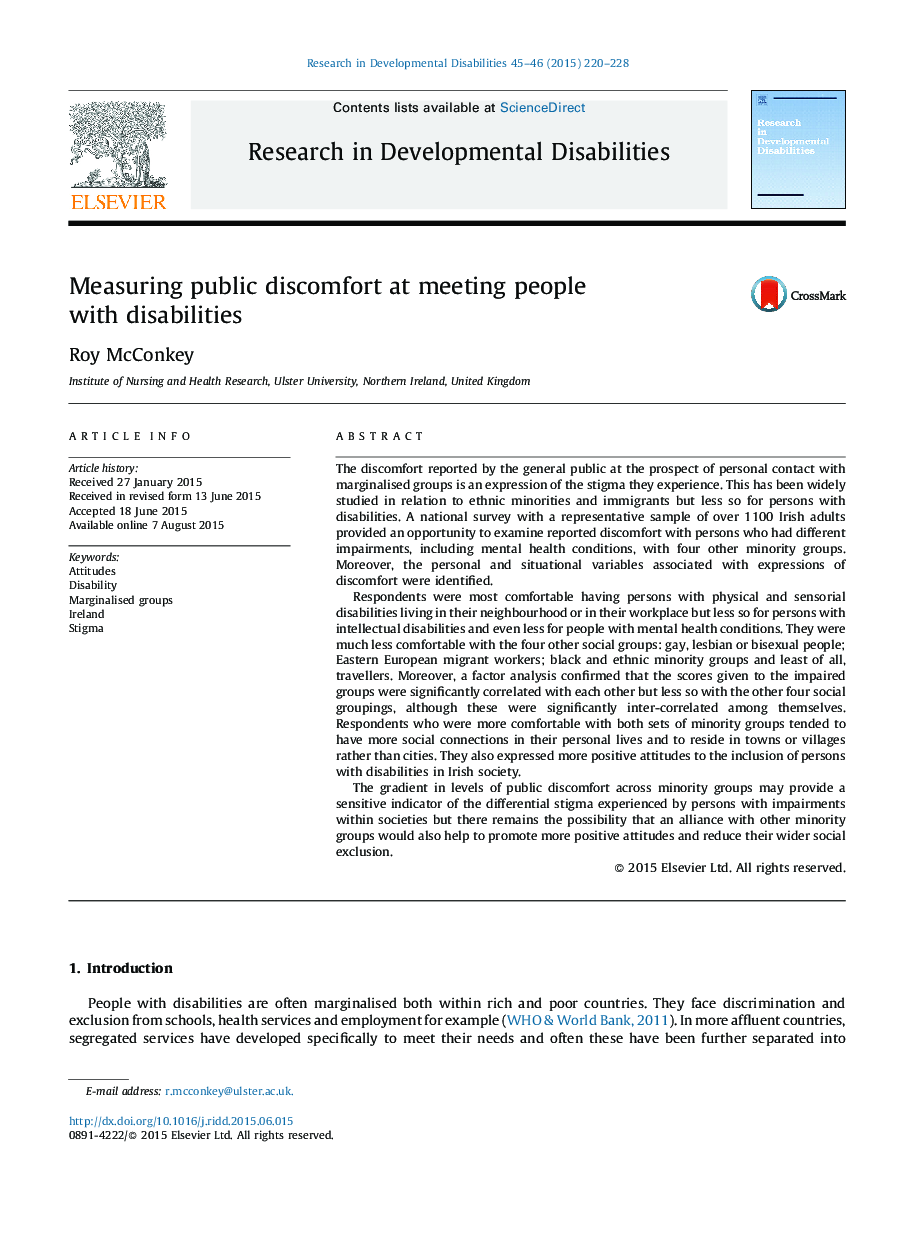| کد مقاله | کد نشریه | سال انتشار | مقاله انگلیسی | نسخه تمام متن |
|---|---|---|---|---|
| 371174 | 621900 | 2015 | 9 صفحه PDF | دانلود رایگان |
• Irish adults are most comfortable with people who physical and sensorial impairments.
• They are least comfortable with people from other marginalised groups.
• People who have fewer social connections tend to show higher levels of discomfort.
• Persons who are comfortable with marginalised groups hold more positive attitudes.
The discomfort reported by the general public at the prospect of personal contact with marginalised groups is an expression of the stigma they experience. This has been widely studied in relation to ethnic minorities and immigrants but less so for persons with disabilities. A national survey with a representative sample of over 1100 Irish adults provided an opportunity to examine reported discomfort with persons who had different impairments, including mental health conditions, with four other minority groups. Moreover, the personal and situational variables associated with expressions of discomfort were identified.Respondents were most comfortable having persons with physical and sensorial disabilities living in their neighbourhood or in their workplace but less so for persons with intellectual disabilities and even less for people with mental health conditions. They were much less comfortable with the four other social groups: gay, lesbian or bisexual people; Eastern European migrant workers; black and ethnic minority groups and least of all, travellers. Moreover, a factor analysis confirmed that the scores given to the impaired groups were significantly correlated with each other but less so with the other four social groupings, although these were significantly inter-correlated among themselves. Respondents who were more comfortable with both sets of minority groups tended to have more social connections in their personal lives and to reside in towns or villages rather than cities. They also expressed more positive attitudes to the inclusion of persons with disabilities in Irish society.The gradient in levels of public discomfort across minority groups may provide a sensitive indicator of the differential stigma experienced by persons with impairments within societies but there remains the possibility that an alliance with other minority groups would also help to promote more positive attitudes and reduce their wider social exclusion.
Journal: Research in Developmental Disabilities - Volumes 45–46, October–November 2015, Pages 220–228
